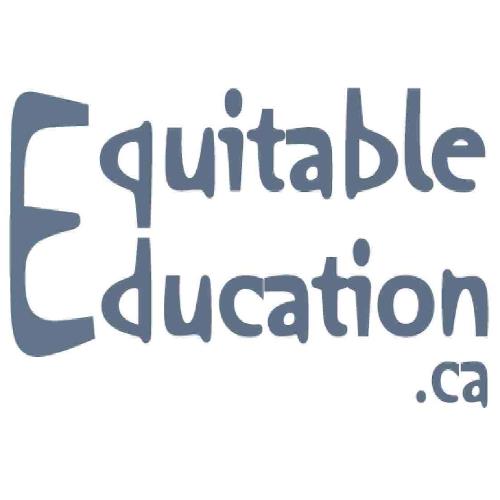Article and videos from the Rally Against Police Violence, and the Forum on Police Violence, Incarceration and Alternatives, held in Ottawa in mid-March 2011.
Videos produced by M-Media for Common Cause Ottawa – LinchpinNews on youtube.
Fighting back against police violence, and uniting for alternatives
by Krishna Bera, Tara Lyons & Greg Macdougall
published in the ‘Summer 2011′ issue of Linchpin
On 15 March 2011, about 75 people demonstrated against police violence in downtown Ottawa, marking the International Day Against Police Brutality. This was the first year an event was held in Ottawa, taking the lead from the annual march in Montreal that started in 1997. Toronto and Halifax also saw marches commemorating the day this year, while Winnipeg held one the following Saturday.
In Ottawa, participants gathered at the Human Rights Monument, where Algonquin Elder Albert Dumont delivered opening remarks; Frederique Chabot of POWER (Prostitutes of Ottawa: Work, Educate and Resist) spoke next, noting the police’s harassment and unequal treatment of sex workers and members of the LGBTQ communities. After the crowd marched down Elgin Street to the Ottawa Police station, Andrew Nellis of the Ottawa Panhandlers’ Union and Matthew Morgan-Brown of OPIRG/GRIPO-Ottawa both spoke of their personal experiences of (mis)treatment by the police/criminal system, drawing particular attention to the systemic nature of the problem of police violence.
Despite several recent high-profile cases of Ottawa police brutality, including the laying of charges against an officer that very day in relation to the Stacy Bonds case (a young woman who was violently strip-searched in the cellblock after being unlawfully arrested), both major Ottawa newspapers chose to focus their coverage on Morgan-Brown’s involvement in the demonstration. In doing so, they failed to address the rising intolerance of the Ottawa public to the police force’s mistreatment of citizens.
The march was connected to the Forum on Police Violence, Incarceration and Alternatives, held over the weekend at the University of Ottawa and organized by OPIRG/GRIPO. Over 120 people attended the opening panel, which featured five speakers, and was followed by a day of workshops.
During the forum, Jaggi Singh emphasized the structural nature of police violence, noting that the problem has been escalating for years in Canada – to the point where now it is not just dissent that is being criminalized, but organizing itself.
Ashanti Alston, via video feed, spoke from his lived experience of involvement with the Black Panther Party and the Black Liberation Army. Alston pointed out that the historical record of incarceration, policing, racism, classism and slavery dates back at least 400 years; he highlighted the importance of combating our fear of taking on the police/criminal system, of working to replace the need for these institutions, of connecting with people internationally who are working on alternatives, and the urgent need to struggle on behalf of all those who suffer and of those who are already dead.
Three speakers gave personal accounts of friends and family members who have died at the hands of police.
Anas Bennis was shot in Montreal as he returned to his house following morning prayers at a nearby mosque; Samir Shaheen-Hussain of the Justice Pour Anas Coalition pointed out the rampant racial and ethnic profiling carried out by police, but also noted the effectiveness of community organizing as a tool for seeking justice. The riots that followed Montreal youth Fredy Villanueva’s killing by police spurned a coroner’s inquest, whereas the Bennis family has not received any similar semblance of justice.
Gladys Tolley was hit by a police car while crossing the road in Kitigan Zibi reserve, two hours north of Ottawa. Bridget Tolley’s long and arduous quest for justice in the case of her mother’s death has run into a litany of corruption, incompetence, stonewalling and conflicts of interest as three police agencies (including the reserve’s own police) have colluded to avoid blame.
Ben Matson was killed in Vancouver, where police brutalized him after a verbal altercation with an off-duty police officer. His daughter, Julie Matson, spoke about the murder of her father by police in full view of the public and local media; she was able to obtain an inquiry, in which she was able to share her account of her father’s murder with the public – yet the only possible outcome from the beginning of the proceedings was ‘accidental death.’
All three deaths were greeted by police cover-ups, who consistently blamed the victims and callously disregarded the concerns of their families and communities.
The Forum on Police Violence, Incarceration and Alternatives explored specific types of police violence against queers and sex workers. The workshops also provided an opportunity to draw connections between struggles and to work towards grassroots solutions to police violence and incarceration.
The Forum sought to question, what our movements can do to effectively fight against police violence and incarceration. Some suggestions that were discussed included resisting state tactics that seek to divide our movement into ‘good’ and ‘bad’ protestors and actions, building a culture of solidarity to help work through fear of resisting police and imagining alternatives, and imagining what a world without prisons and communities without police would actually look like.
“We were glad to see people from a variety of communities and organizations take part in our events against police violence. This is an issue that many of us take to heart. These systemic problems need to be addressed and tackled head-on,” said Pierre Beaulieu Blais, one of the forum organizers.
Jaggi Singh
Samir Shaheen-Hussain
Bridget Tolley
Julie Matson
Ashanti Alston
 Interdependent media & in-person learning opportunities for those who are inspired to be part of movements for social justice.
Interdependent media & in-person learning opportunities for those who are inspired to be part of movements for social justice.
Latest comments